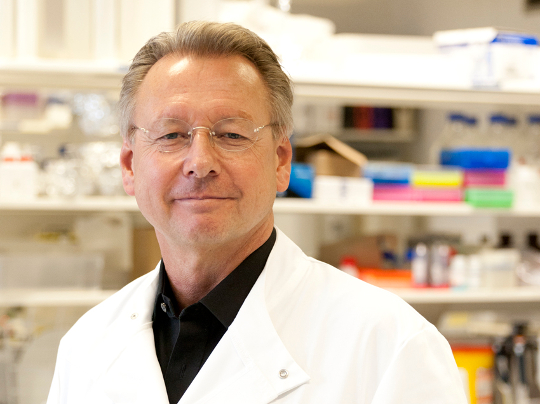Universities must offer women more networking opportunities and training in leading large teams to help close the gender gap at the top of science – according to the head of the UK’s leading research centre.
Professor Paul Workman, Chief Executive of The Institute of Cancer Research, London, urged more support for female scientists to lead ‘team science’ initiatives in a roundtable discussion at the Academy of Medical Sciences today (Monday).
He warned that too much science networking is done out of hours such as in pubs and conference bars – in environments and at times that women can find more difficult than men to access once they have families.
Some studies indicate that men are more likely than women to be the central ‘nodes’ in science networks. In turn that can mean men are more likely than women to take leadership roles in ‘team science’ – the term for when large numbers of researchers with different expertise come together to tackle big problems.
Professor Workman warned that he is concerned that lack of support in developing collaborative networks is limiting opportunities for women to become tomorrow’s scientific leaders. Large team initiatives are increasingly seen as essential to crack the really big scientific problems, but it is essential that this is not allowed to get in the way of progress in eradicating the gender gap at the top of science, he said.
Under Professor Workman’s leadership, The Institute of Cancer Research (ICR) is spearheading a range of initiatives aimed at building networking skills for both women and men – including ‘collaboration speed dating’, in-work multidisciplinary networking groups, and a cross-university teamwork initiative.
The ICR has also responded to demand from its junior researchers to provide specific training in the skills which support team science – including managing people across teams and organisations, communication and conflict resolution.
Professor Paul Workman, Chief Executive of The Institute of Cancer Research, London, said:
“Evidence shows that women are less likely than men to be central hubs in the networks of people needed for team science projects. The reasons for that are likely to be complex – but at least part of the problem is that too much networking in science goes on out of hours, for example in pubs and conference bars.
“Scientists increasingly appreciate that the most challenging research problems are only going to be solved through a team science approach. So it’s critical that we put in place the training, and the in-hours networking opportunities, to make sure the leaders of these major research networks are just as likely to be women as men.
“This is just one of a range of issues which universities must proactively address, from senior management level, to ensure women and men have equal opportunities in all aspects of career development. At the ICR, we’re initiating a range of projects to equip all our researchers as robustly as possible for the scientific challenges of the future – from a programme of training to collaboration speed dating.”
The Academy of Medical Sciences is undertaking a policy project on ‘Team Science’, which is focusing on improving the recognition of individual researchers’ contributions to large collaborative projects, looking at the issue from the perspective of researchers, employers, funders and publishers. Professor Workman was one of a number of key stakeholders invited to discuss the issue from an employer’s perspective, to help inform the project’s development.
The ICR, which appointed Professor Workman as Chief Executive last November, recently came top of the Times Higher Education league table of universities for performance in the Research Excellence Framework.
